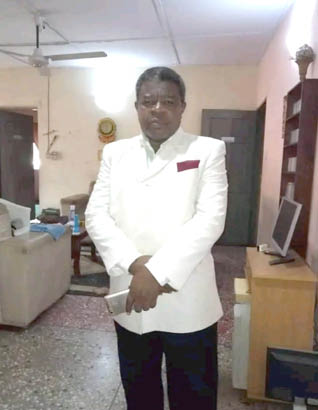President Bola Tinubu has ordered a review of the proposed tax reform bill as protests continue in the National Assembly. The bill, which aims to reshape Nigeria’s fiscal framework, has sparked controversy and opposition from various groups, including governors and traditional rulers from Northern Nigerian states.¹
The proposed tax reform bill includes several key provisions, such as:
✔ Increment in VAT: Raising the value-added tax (VAT) from 7.5% to 10% by 2025, with further increases to 12.5% from 2026 to 2029, and 15% from 2030 onwards.
✔ VAT Exemptions: Exempting certain supplies from VAT, including oil and gas exports, crude petroleum oil, and feed gas.
✔ 27.5% Company Tax: Imposing a tax rate of 27.5% on companies in 2025, reducing to 25% from 2026.
✔ 4% Development Levy on Companies: Introducing a development levy on companies, excluding small and non-resident companies, to fund the Student Education Loan Fund.
✔ 5% Excise Tax on Lottery and Gaming Income: Imposing a 5% excise duty on revenue from lottery and gaming trade or business.
✔ 5% Telecoms Tax: Proposing a 5% excise duty on telecommunications services.
PUNCH
Following the controversy trailing the Tax Reforms Bills, President Bola Tinubu has directed the Ministry of Justice to work closely with the National Assembly to address the concerns raised by Nigerians.
The President, who is in South Africa, handed down the review order on Tuesday as some northern youths stormed the National Assembly in support of the bills.
The bills – the Nigeria Tax Bill 2024, the Nigeria Tax Administration Bill, the Nigeria Revenue Service (Establishment) Bill, and the Joint Revenue Board (Establishment) Bill – have generated hot debates and contention across the country with northern governors and lawmakers opposed to their passage.
Critics argue that the reforms could disrupt the balance of fiscal federalism, potentially centralising tax authority and diminishing state revenues.
However, in a move to assuage the high emotion over the reform bills, Tinubu directed the Federal Ministry of Justice and relevant officials who worked on the draft to collaborate with the National Assembly to address all genuine concerns before the bills were passed.
This was contained in a statement signed by the Minister of Information and National Orientation, Mohammed Idris, titled, ‘President Tinubu committed to accountability on tax bills, directs Ministry of Justice to work with NASS on concerns.’
Tinubu’s directive
The minister said, “In line with the established legislative procedure, the Federal General welcomes meaningful inputs that can address whatever grey areas there may be in the bill.
“In this vein, President Tinubu has already directed the Federal Ministry of Justice and relevant officials who worked on the drafts to work closely with the National Assembly to ensure that all genuine concerns have been addressed before the bills are passed.”
Notably, at a meeting on October 28, governors of the 19 Northern States, under the platform of the Northern Governors’ Forum, rejected the new derivation-based model for Value-Added Tax distribution in the tax reform bills.
They argued that the changes might adversely affect their regions’ financial autonomy.
Three days later, the National Economic Council, comprising all 36 state governors, asked the President to withdraw the Tax Reforms Bill from the National Assembly for comprehensive consultations.
However, the President said there would be no need to withdraw the bill from the National Assembly.
Governor Babagana Zulum of Borno State warned that while the President could deploy his executive powers to pass the tax bills, there would be consequences for millions of Nigerians.
Zulum added that the proposed VAT-sharing model will only benefit Lagos and Rivers states.
But Governor of Nasarawa State, Abdullahi Sule, former Speaker of the House of Representatives, Yakubu Dogara, and many other northern leaders endorsed the bills.
Nonetheless, the Senate passed the bills for a second reading, a move that has been met with harsh criticisms.
In its statement on Monday, the Presidency said most reactions from political leaders and commentators “are not grounded in facts, reality, or sufficient knowledge of the bills.”
It said the tax bills will not enrich Lagos or Rivers at the expense of northern states.
Corroborating the Presidency’s stance, the information minister said, “The fiscal reforms will not impoverish any state or region of the country, neither will they lead to the scrapping or weakening of any federal agencies.”
The Federal Government welcomed the nationwide debate on the bills saying, “This is the very essence and meaning of democracy.”
Protest in NASS
Meanwhile, Some youths from the North, on Tuesday, staged a protest at the National Assembly in support of the tax reform bills.


